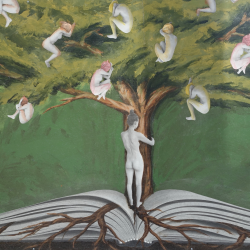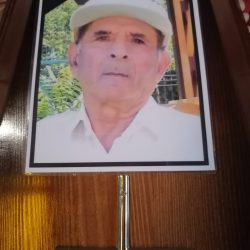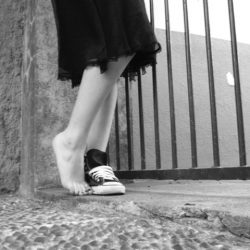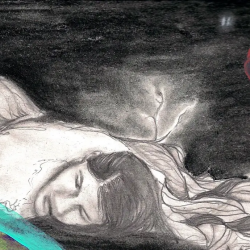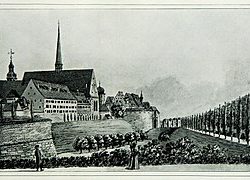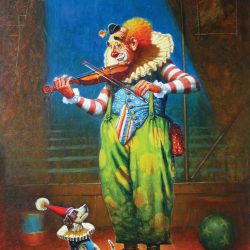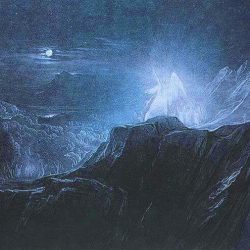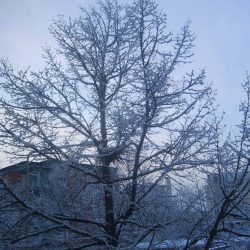- HOME
- MEDIA
- L.Onerva
- Eino Leino
- Eeva-Liisa Manner
- Erään Opon päiväkirja
- Elämänkenttäni
- Elämäni ”viiva”
- Käyttöteoriani – se miten minä ohjaan
- Kulttuuritietoinen ja kansainvälistyvä ohjaus
- Ohjauksen järjestäminen maahanmuuttajakoulutuksessa
- Ohjauksen yhteiskunnallinen viitekehys
- Ohjaukäsite
- Oma opiskeluorientaatio
- Opiskelijoiden yksilöllisyys ohjauksessa
- EETTISET KYSYMYKSET
- Psykososiaalisen kehityksen teoria
- Suhteeni erilaisuuteen ja tehtäväni opinto-ohjaajana
- Opinto-ohjauksen ja erityisopetuksen yhtäläisyyksiä ja eroja
- Kehitykseni opinto-ohjaajana
- Maahanmuuttajan uraohjaus
- Maahanmuuttajien ohjaus ja neuvonta: kuka, mitä, miten?
- Ohjauksen tulevaisuus
- Elämänkenttäni
- Mariana Marin
- Claudiu Komartin
- Mariana Codrut
- Roland Erb
- Romanian poetry
- STORIES
- READING POETRY
- translated Finnish-Romanian
- translated English-Finnish
- translated French-Finnish
- translated Romanian-English
- translated Spanish-English
- translated German-English
- translated Finnish-English
- translated English-Romanian
- translated French-Romanian
- translated French-English
- translated Romanian-French
- translated Romanian-German
contemporary poetry
CA UN PUMN DE ALICE / LIKE A FISTFUL OF BUCKSHOT
POSTED IN contemporary poetry, translated Romanian-English August 26, 2021
CA UN PUMN DE ALICE / LIKE A FISTFUL OF BUCKSHOT
Am 30 de ani ca un pumn de alice și omultitudine de obiecte și atitudini pe care
le-aș putea descrie sau enumera
ca să devin o poetă a
acumulării
cum am auzit recent despre o tipă care aduna
în poezia ei orice
la fel ca bătrânii care de la un timp încep
să strângă pe balcon toate vechiturile din oraș
în simplitatea mea de începătoare se aud
doar detunături
ca săptămâna trecută când ceva a explodat
și în mine se auzea țiuitul prelung pe care îl
scot două microfoane pornite când se ating
am apăsat singură butonul off de pe microfonul
care insista să transmită unui public adult
o voce nepregătită, rârâită
am o limbă leneșă, mi-a spus doctorul
dintre cele făcute să ascundă un bănuț de argint
ANDREEA APOSTU……………………………
LIKE A FISTFUL OF BUCKSHOT
I have 30 years like a fistful of buckshot and a
multitude of objects and attitudes
I could describe or list
to become a poet of
hoardinglike I recently heard about a gall who was collecting
in her poetry everything
just like the old people who after a while start
collecting on the balcony all the junk in town
in my beginner’s simplicity one can hear
only detonations
like last week when something exploded
and inside me there was the long whistle that
two on microphones produce when they touch
I pressed the off button on the microphone myself
that insisted on broadcasting to an adult audience
an unprepared, raspy voice
I have a lazy tongue, the doctor told me
one of those made to hide a silver penny
Traducere, Maria Magdalena Biela
IN MEMORIAM
POSTED IN contemporary poetry August 15, 2021
On 12.08.2021, my whole world stopped at 7.15 a.m. My Father, GRIGORE NASTASE, left this life for a better one…may HE rest in peace…Today took place his funerals……………………………………………In amintirea tatalui meu, un om bun, un tata cu suflet larg cat lumea lui Dumnezeu: GRIGORE NASTASE, plecat din asta viata in ziua de 12.08.2021, orele 7.15 a.m.De voi, ca si de viatam-am despartit nevrand.Ganditi-va la minemacar din cand in cand.…………………………………………..Stop all the clocks, cut off the telephone
Stop all the clocks, cut off the telephone,
Prevent the dog from barking with a juicy bone,
Silence the pianos and with muffled drum
Bring out the coffin, let the mourners come.Let aeroplanes circle moaning overhead
Scribbling on the sky the message He Is Dead,
Put crepe bows round the white necks of the public doves,
Let the traffic policemen wear black cotton gloves.He was my North, my South, my East and West,
My working week and my Sunday rest,
My noon, my midnight, my talk, my song;
I thought that love would last for ever: I was wrong.The stars are not wanted now: put out every one;
Pack up the moon and dismantle the sun;
Pour away the ocean and sweep up the wood;
For nothing now can ever come to any good.W H Auden
Descult prin viata
POSTED IN contemporary poetry June 18, 2021
Descult prin viataDescult prin viata
storc amanuntele
sub talpa-mi, cruntele
curg de pe ata.Piciorul greu
divin judecator
sta-n aer rabdator
un semizeu.Pandesc, cu jind,
sa-i vad miscarile
determinarile
nesovaind.Cum sa ma rog?
Sfinte piciorule,
iarta, calaule,
‘ncaltat milog.Mereu sunt doi:
descult Puternicul
‘ncaltat cucernicul
ciudat altoi.Cand descaltatu’
sa simta viata vrea
in cale.i, piaza rea,
sta incaltatu’.Impiedicat
mi-e mersul pe pamant.
Ce mai bipeda sunt…
Ce mai pacat.Maria Magdalena Biela
Das Ohr / The ear / Urechea
POSTED IN contemporary poetry, translated German-English June 18, 2021
Das Ohr / The ear / Urechea
Wir halten das offene Ohr
an die Erde, sehr schwach
dringt ein Beben herauf
wie von hastig stampfenden Hämmern
weit über Land oder
Panzerketten, die blindwütig
Dörfer einebnen, wir halten
das offene Ohr an die Erde,
sehr schwachRoland Erb
————————————–
The ear
We keep the open ear
to the earth, very faint
a tremor comes up
as of hastily pounding hammers
far over land or
chains of tanks blindly leveling
villages, we keep
an open ear to the earth,
very faintly——————————–
Urechea
Ținem urechea deschisă
la pământ, foarte slab
un tremur se simte
ca de ciocănele care bat în grabă
departe peste pamant sau
șenile de tancuri niveland orbește
satele, noi păstrăm
o ureche deschisă la pământ,
foarte slabTranslated by Maria Magdalena Biela
SPRENGUNG DER PAULINERKIRCHE IM JAHR 1968 / THE DEMOLITION OF PAULINER CHURCH IN 1968 / DEMOLAREA BISERICII PAULINER ÎN 1968
POSTED IN contemporary poetry, translated German-English June 2, 2021
SPRENGUNG DER PAULINERKIRCHE IM JAHR 1968 / THE DEMOLITION OF PAULINER CHURCH IN 1968 / DEMOLAREA BISERICII PAULINER ÎN 1968
In einer riesigen Wolke Staub
leben die Bruchstücke fort.
Der Rest des gotischen Kreuzgangs,
die Kutten der Bettelmönche,
das Feixen obszöner Studenten
unweit des Stadttors,
die erneute Kirchweih durch Luther
und Seelenqualen eines Musikdirektors
angesichts krähender Knaben.
Das vage Erscheinungsbild Gottschedts
auf dem Lehrstuhl gleich nebenan,
ein neugieriger Blick des Bummlers aus Frankfurt,
der Lilis Menagerie bald den Vorzug gab.
Der Altar, die Epitaphien, das Sitzbild Aquins
in der dämmererfüllten Halle,
wo Jahrhunderte spä]
nach Kriegen, Bränden, Bombardements,
unter Medusenblicken und ständigem
Drohen mit Schließung
die Kanzelrede geübt wurde.
Und im Dezember der bachische Eingangschor
mit der unvergesslichen Trompete
Armin Männels
und Robert Köblers aufstörendes Spiel
auf der kriegsversehrten Orgel.
Das dunkle Gefühl von Umzinglung
und Ohnmacht des Widerstands,
ein Foto aus dem Jahr 65,
das mich als Studenten zeigt vor dem Gemäuer,
als ich sprachlos verzweifelt liebte.
Aber dann
das Andrängen der Demonstranten,
die stoßenden Zwölferreihen der Lederjacken,
als sie den Sperrzaun schützten,
und die Friedhofsruhe des Platzes
vor jenem dumpfen Knall,
da die Jahrtausend-Steine zerbarsten
und der Staub zum Himmel aufstieg.
(aus: “Märzenschaf. Gedichte”, Dresden, 1995)ROLAND ERB
———————————–
THE DEMOLITION OF PAULINER CHURCH IN 1968
In a huge cloud of dust
the fragments live on.
The rest of the Gothic cloister,
the robes of mendicant monks,
the smirking of obscene students
not far from the city gate,
the renewed parish consecration by Luther
and the anguish of a music director’s soul
in the face of crowing boys.
The vague appearance of Gottschedt
on the chair next door,
a curious look of the idler from Frankfurt,
who soon preferred Lili’s menagerie.
The altar, the epitaphs, the seat of Aquinas
in the dusk-filled hall,
where centuries later
after wars, fires, bombings,
under Medusa gazes and constant
threatened closure
the pulpit speech was practiced.
And in December the Bach opening choir
with the unforgettable trumpet
Armin Mannels
and Robert Köbler’s disturbing playing
on the war-damaged organ.
The dark feeling of being surrounded
and powerlessness of the resistance,
a photo from the year 65,
that shows me as a student in front of the walls,
When I loved speechless desperately.
But then
the crowd of demonstrators,
the pushing rows of twelve leather jackets,
as they protected the barrier fence,
and the cemetery serenity of the square
before that dull bang,
while the millennium stones shattered
and the dust rose to the sky.(from: “March sheep. Poems”, Dresden, 1995)
———————————————-
DEMOLAREA BISERICII PAULINER ÎN 1968
Într-un nor imens de praf
fragmentele mai trăiesc inca.
Restul mănăstirii gotice,
hainele călugărilor mendicanti,
zâmbetul elevilor obsceni
nu departe de poarta orașului,
consacrarea parohială reînnoită de către Luther
și agonia sufletului unui regizor muzical
în fața băieților care cântă.
Aspectul vag al lui Gottschedt
pe scaunul de alături,
o privire curioasă a unui pierde-vara din Frankfurt,
care a preferat curând menajeria lui Lili.
Altarul, epitafele, scaunul lui Aquinas
în sala plină de amurg,
unde secole mai târziu
după războaie, incendii, bombardamente,
sub privirile Medusei și constante
amenintari de inchidere,
vorbirea de la amvon era practicată.
Iar în decembrie corul de deschidere Bach
cu trompeta de neuitat
Armin Mannels
și sunetul tulburător al lui Robert Köbler
pe orga rănita de război.
Senzația întunecată de a fi înconjurat
și neputința rezistenței,
o fotografie din anul 65,
care mă arată student în fața zidurilor,
Când am iubit cu disperare fără cuvinte.
Dar apoi
mulțimea de manifestanți,
imbulzeala celor douăsprezece jachete de piele,
în timp ce protejau bariera,
și seninătatea de cimitir a pieței
înainte de acea bubuitură surda,
pe când pietrele mileniului se spulberau
iar praful se ridica spre cer.Translated by Maria Magdalena Biela
WAS IST / WHAT IS / CARE ESTE
POSTED IN contemporary poetry, translated German-English June 2, 2021
WAS IST / WHAT IS / CARE ESTEWas ist mit den schlafenden Brüsten
unter dem sanftgrünen Hemd,
wer hat dir die Füße mit dem Betttuch verknotet,
was liegt der Bleiklotz der Decke auf dem atmenden Leib,
der bedauerlich schnauft und sehr wenig Luft kriegt.
Draußen rasselt ein Fahrzeug mit scheppernden Rohren vorbei,
ein Vogel piepst seltsam, die Sonne sticht dir in die Nase,
brennt dir am Ende noch das Gesicht entzwei.
Doch deine Schultern, die hältst du ängstlich versteckt,
auch alles andre, unter die Federn geklemmt.
Ich warte und warte, Freitag ists, 13. Mai um halb vier,
aber du denkst nicht dran, schnarchst und sagst was im Schlaf
vom Fliegenpack, das dich stört, und fuchtelst, tötest die Lust
der Staubfäden, die da flimmern und tanzen
auf dem Lichtstrahl, der schräg das Zimmer durchmisst.ROLAND ERB
———————————————-
WHAT IS
What about the sleeping breasts
under the soft green shirt,
who knotted your feet with the bed sheet,
what is the lead block of the cover on the breathing body,
who puffs regrettably and gets very little air.
Outside, a vehicle rattles past with clattering pipes,
a bird beeps strangely, the sun stings your nose,
and in the end it burns your face in two.
But your shoulders, you keep them fearfully hidden,
everything else too, tucked under the feathers.
I wait and wait, it’s Friday, May 13th at half past three,
but you don’t think about it, you snore and say something in your sleep
about the fly pack that bothers you, and waving, you kill the lust
of the stamens that flicker and dance
on the beam of light that diagonally crosses the room.———————————————-
CARE ESTE
Ce zici de sânii care dorm
sub cămașa verde moale,
care ți-a înnodat picioarele cu cearșaful,
ce este blocul de plumb al paturei pe corpul respirand,
care pufăiește regretabil și primește foarte puțin aer
Afară, un vehicul huruie cu țevi zgomotoase,
o pasăre sună ciudat, soarele iti frige nasul
și sfârșește prin a-ți arde fața în două.
Dar umerii tăi, îi tii ascunsi cu teama,
și toate celelalte, ascunse sub pene.
Eu aștept și aștept, este vineri, 13 mai, la trei și jumătate,
dar nu te gândești la asta, sforăi și spui ceva în somn
despre haita de muște care te deranjează și fluturand,
ucizi pofta
staminelor care pâlpâie și dansează
pe fasciculul de lumină care traversează diagonal camera.
Translated by Maria Magdalena Biela
LUFTSPRÜNGE / AIR JUMPS / SALTURI IN AER / ILMAHYPPYJÄ
POSTED IN contemporary poetry, translated German-English May 28, 2021
LUFTSPRÜNGE / AIR JUMPS / SALTURI IN AER / ILMAHYPPYJÄ
Die Clowns
mit den weißen Schminkmasken
machen heut Abend
so große Sprünge.
Und plumpsen
immer wieder
zurück in das
Sägemehl.
Sie falln mit den bunten
Pluderhosen
tief in den Staub, es
klatscht
ganz leise.
Aber
sie springen
wunderbar weit
in die Höhe, sie
scheinen
für einen Moment
zu schweben
im siebten Himmel.
Was tut ihr da,
närrisch, verquer,
täppische
Clowns.ROLAND ERB
—————————–AIR JUMPS
The clowns
with the white make-up masks
make such big jumps
tonight.
And plop down
over and over again
back into
the sawdust.
They fall with the colorful
baggy pantaloons
deep in the dust,
clapping very softly.
But
they jump
wonderfully far
up into the air,
they seem
for a moment
to float in the seventh heaven.
What are you doing there
foolish, strange,
clumsy
Clowns.—————————–
SALTURI IN AER
Clovnii
cu măștile albe de machiaj
fac salturi atât de mari
în seara asta.
Si se rostogolesc
iara si iara
inapoi
in rumegus.
Cad
adânc în praf
cu pantalonii harem
colorati,
bufnind foarte
ușor.
Dar
sar
minunat de departe
sus, in aer,
par
pentru o clipa
sa pluteasca in al saptelea cer.
Ce faceti voi acolo,
clovni prosti, ciudati,
stângaci.—————————–
ILMAHYPPYJÄ
Klovnit
valkoiseksi meikatut
tekevät tänään
niin suuria hyppyjä.
Ja tömähtävät
uudelleen ja uudelleen
takaisin
sahanpuruun.
He putoavat värikkäissä
lökäpöksyissään
syvälle puruihin,
Se tömähtää hyvin
pehmeästi.
Mutta
he hyppivät
uskomattoman kauas
korkealle ilmaan,
he näyttävät
hetken ajan
leijuvan seitsemänteen taivaaseen.
Mitä te siellä teette,
hölmöt, oudot,
kömpelöt
klovnit.
Translated by Maria Magdalena Biela
DER WÄCHTER / THE GUARD / PAZNICUL / VARTIJA
POSTED IN contemporary poetry, translated German-English May 28, 2021
DER WÄCHTER / THE GUARD / PAZNICUL / VARTIJASieh auf die weiße Sickerwand vor dir,
dein Blick macht sie noch feuchter.
Steh auf und geh vier Schritte hin,
vier Schritte her.
Du hörst ein weit entferntes Rauschen, nein,
ein Rieseln,
oder doch nichts.
Ein Dunst ringsum von abgekühlten Schwaden Rauchs,
ein vager Schmerz von innen.
Du bist ein Mann mit einer Lampe
und Tisch und Stuhl und
Nacht,
sehr langer Nacht.ROLAND ERB
———————————-THE GUARD
Look at the white seepage wall in front of you
your gaze makes it even wetter.
Get up and take four steps back,
four steps forward.
You hear a distant murmur, no
a trickling,
or nothing.
A haze of cooled swaths of smoke all around,
a vague pain from within.
You are a man with a lamp
and table and chair and
Night,
very long night.———————————
PAZNICUL
Priveste peretele alb de igrasie din fața ta,
privirea ta, făcându-l și mai umed.
Ridică-te și fă patru pași indarat,
patru pași inainte.
Auzi un murmur îndepărtat, nu,
o picurare,
sau nimic.
O ceață de nori de fum răcit imprejur,
o durere vagă dinăuntru.
Ești un om cu o lampă
și masă și scaun și
noapte,
foarte lungă noapte.…………………………….
VARTIJA
Katso edessäsi olevaa valkoista kosteaa seinää,
katseesi tekee siitä vielä kosteamman.
Nouse ja ota neljä askelta taaksepäin,
neljä askelta eteenpäin.
Kuulet kaukaisen kohinan, ei,
vaan solinan,
tai et oikeastaan mitään.
Viilenneitä savupilviä ympärillä,
vaimea kipu sisällä.
Olet mies, jolla on lamppu
ja pöytä ja tuoli ja
yö,
hyvin pitkä yö.Translated by Maria Magdalena Biela
Birthdays
POSTED IN contemporary poetry January 17, 2021
BirthdaysI’ll bake tonight a rounded cake
to celebrate the wish I make
I’ll lit my candles with the Moon
and let them glow in nightly gloom.I wish myself a better year,
to feel and see what I can’t hear,
and as a snake sheds its own skin
I’d like to shed my old chagrin.In darkened room a mirror stays,
in candlelight I catch a gaze
from mirror staring straight at me.
One moment thought: who could that be?The candles shiver as I do,
She looks at me as if she knew
something I did not. Who is she?
From mirror comes another me.A girl with dark wide opened eyes,
she’s silent without any smiles.
She’s watching from another time,
she hears and sees a silenced chime.I look into the mirror’s will
another me its waves reveal.
All other me that through time strives
to help me learn my other lives.I make a wish and write it on
a piece of paper which anon
I fold in half and light in fire,
and let it burn my heart’s desire.Candles like not to be blown out.
Wet fingertips or with my clout
I kill their flame. I’m born again.
With all my stars I drink champagne.Maria Magdalena Biela
Let’s have a HAPPY NEW YEAR!
POSTED IN contemporary poetry December 31, 2020
Let’s have a HAPPY NEW YEAR!
Preparing a real feast at home ‼️No need for fancy restaurants, nor spending money , everything we need to welcome the most waited New Year is here, under my nose‼️ Improvising – le mot du jour ‼️ Lights, please! Glasses, ready? Food – everything under 1000 kcal ‼️ Aaand, let’s be in a silly childishly good mood ‼️ COVID is the guest of honour: to be shot at midnight!
HAPPY HEALTHY NEW YEAR ❤️‼️ All friends invited! Required ugly smiles, bad jokes, total amnesia, jeans and t.shirts with dirty logos aaaaand if your glass seems to be half full or empty, ADD TEQUILA ❣️‼️Maria Magdalena Biela

Copyright © 2025 by Magdalena Biela. All rights reserved.
